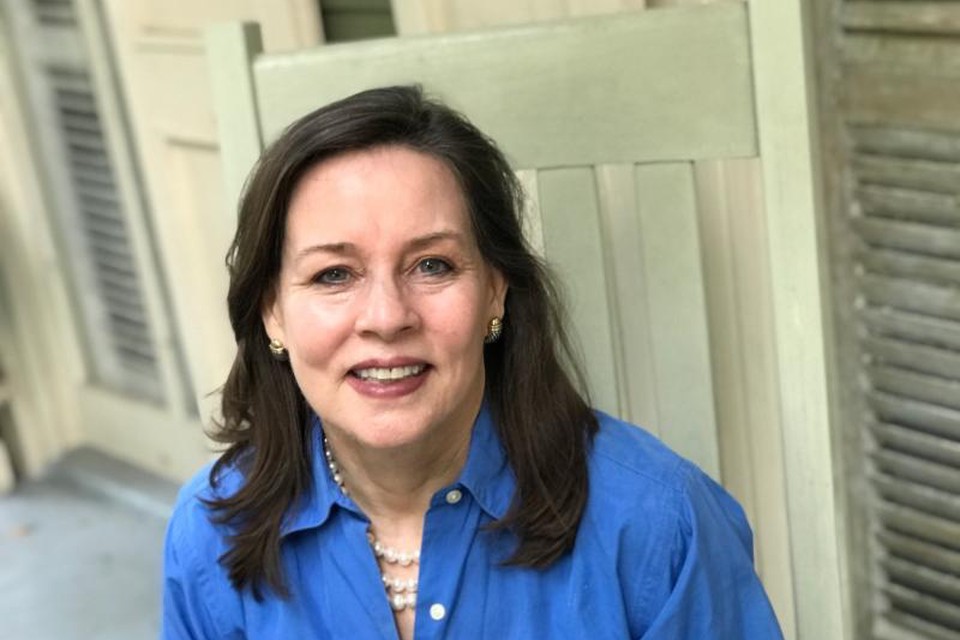Parker Sternbergh didn’t choose social work as her first career. After attending business school and embarking on a successful career as a healthcare administrator, her professional path was on a set course until her life took an unexpected turn. In the aftermath of a devastating personal loss, Sternbergh realized that she wanted to dedicate her professional life to helping others cope with the life-changing grief and trauma she and her family had experienced.
She attended the Tulane School of Social Work and became a licensed clinical social worker. Tulane then offered Sternbergh a position at the Porter-Cason Institute for the Family, where she now serves as the director. The Porter-Cason Institute carries out its work through the MSW program’s Certificate in Family Practice and Certificate in Disaster Mental Health and Trauma Studies, as well as through community trainings and projects.
Sternbergh’s initial focus at the Porter-Cason Institute centered on working with the community to deal with the back-to-back disasters of Hurricane Katrina and the BP oil spill, both of which had an immediate and long-lasting impact on the families in the New Orleans area. Sternbergh’s current projects and areas of research focus on addiction, family trauma, homeless youths, and children in the juvenile justice and foster care systems. “New Orleans has the highest incarceration rate in the country, and we as a country have the highest incarceration rate in the world per capita,” Sternbergh says. “We feel like we need to understand the attachment injury that happens to people in the family when they lose family members to the system — and what that does to children — and what happens with the violence we see in families.”
The question of attachment injury led to Sternbergh’s interest in emotionally focused therapy (EFT) and other attachment- and relationally based interventions she uses in her private practice and in her work at the Porter-Cason Institute. Relationally based forms of therapy focus on healing the connections people have with their families and communities in order to truly heal souls and family systems instead of only working with the symptoms of the trauma that a person has experienced. Those symptoms often manifest as disconnection, anxiety, depression, addiction, or intergenerational family violence.
Sternbergh points out that our society sees vulnerability as a weakness, when in fact being open to vulnerability is the only way to find healing from relational pain: “A lot of what happens with people in relationships is this shame piece. It happens in addiction. It happens with people in families. Shame cuts people off from connection and healing. This is a problem because we are hardwired for connection. The thing that keeps shame controlling people, relationships, and behavior is the secret of what that shame means to the individual. If we put that shaming piece in the light, what the individual finds is people are very compassionate most of the time — much more compassionate and connected [than he or she anticipated].”
When Sternbergh began her work at Tulane nine years ago, she considered herself to be a bit of an oddity because of her focus on working and learning directly in the community instead of taking an ivory tower research-based approach to social work. “With the leadership of Dean Bordnick at the School of Social Work,” Sternbergh says, “Tulane’s approach to clinical work in relation to research and the evolution of current best practices has found a good balance.” She refers to this approach as the “street-smart practice” that is evidence-informed — and informs evidence. Sternbergh describes how she prepares students to work in a clinical setting. “You can’t teach students flat theory and then send them out [into the world] and have them think this is how it is going to work — because the dirty little secret about clinicians is some people are afraid of certain situations, and they just won’t move forward. My job is to make students comfortable in situations that otherwise would be uncomfortable.”
Sternbergh stresses that social work is about connection, which is achievable only through honesty and vulnerability. “Courage in social work is showing up when you are afraid,” Sternbergh explains. “If you are afraid to have the conversation, you need to have it.”
Sternbergh works to help both social workers studying at Tulane and licensed clinicians in the community to gain insight into the experience of their clients and understand the unique role that social workers play in facilitating recovery. One of the most important aspects of training is to have students acknowledge and understand the inherent bias that exists in our society and within ourselves. Once social workers have recognized this bias, they can work to help their clients navigate the systems in place and help them achieve their goals.
The mission of the Porter-Cason Institute for the Family is to enhance the knowledge of the practice of relational healing at Tulane, as well as throughout the greater community, with ongoing teaching and learning opportunities. Sternbergh stresses the value of relational healing and trauma-informed approaches in her work with both Tulane MSW students and the wider social work community through the institute.
